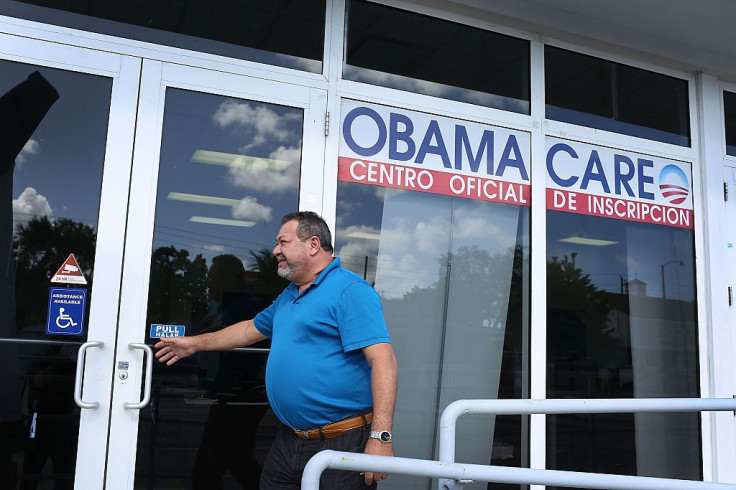More Americans Than Ever Have Health Insurance Coverage, Thanks To Obamacare

There’s been a lot of talk about President Barack Obama’s legacy lately as he nears the end of his time in office — what will be the one great thing he leaves behind? New data from a national health survey suggests it may be the Affordable Care Act (ACA), and not just because everyone calls it Obamacare. The number of people without health insurance coverage is now at a record low.
In 2015, 28.6 million people were uninsured at the time of the survey, which is 7.4 million less than the number reported in 2014; a nearly 10 percent drop. Among those aged 18 to 64, the percentage fell from 16.3 to 12.8 percent. And it fell 1 percent for children under the age of 17. It’s the first time that fewer than 1 in 10 Americans lacks health insurance, according to a news release.
Under the ACA, states have to adopt one of three types of health insurance hubs where private companies can offer different plans, prices, and benefits: one they create themselves, one run solely by the federal government, or one that’s a mix of the two — the government runs the place but states still have some say in certain matters. The survey showed that adults aged 18 to 24 who lived in a state with a federally-operated marketplace were more likely to be uninsured than those in one with either of the other two options. Similarly, those who lived in states that didn’t expand Medicare to low-income populations, another provision of the ACA, were also less likely to have insurance than people in expansion states.
"Today’s report is further proof that our country has made undeniable and historic strides thanks to the [ACA]," Department of Health and Human Services secretary Sylvia Mathews Burwell stated. "The report documents the progress we’ve made expanding coverage across the country. Meanwhile, premiums for employer coverage, Medicare spending, and health care prices have risen at exceptionally slow rates. Our country ought to be proud of how far we’ve come and where we’re going," she added.
This is especially true when considering estimates of insurance reported among the poor and minorities, two populations historically known to experience lower quality care. Data show the greatest decreases in the uninsured rate since 2013 were among adults who were poor or near poor. As for racial and ethnic groups, Hispanic, non-Hispanic black, non-Hispanic white, and non-Hispanic Asian adults all saw drops in uninsured rates, but the most significant improvement was in Hispanic adults — 40.6 to 27.7 percent.
Health insurance ensures access to lifesaving care and services, from cancer screenings to management programs for diabetes and end-of-life care.
“The [ACA] made everyone’s insurance better, not just the people who have coverage through the marketplace or even the 20 million people who have coverage because of the law,” said Burwell. “Today in America, there’s a father who can no longer be denied coverage because of a pre-existing condition; a mother who can no longer be charged more because she’s a woman; and a child who can stay on their parent’s plan up to age 26. Those rules benefit millions of people, and thankfully, they’re now part of the fabric of America.”
Source: Cohen RA, Martinez ME, Zammitti EP. Health insurance coverage: Early release of estimates from the National Health Interview Survey, 2015. National Center for Health Statistics. 2016.
Published by Medicaldaily.com



























